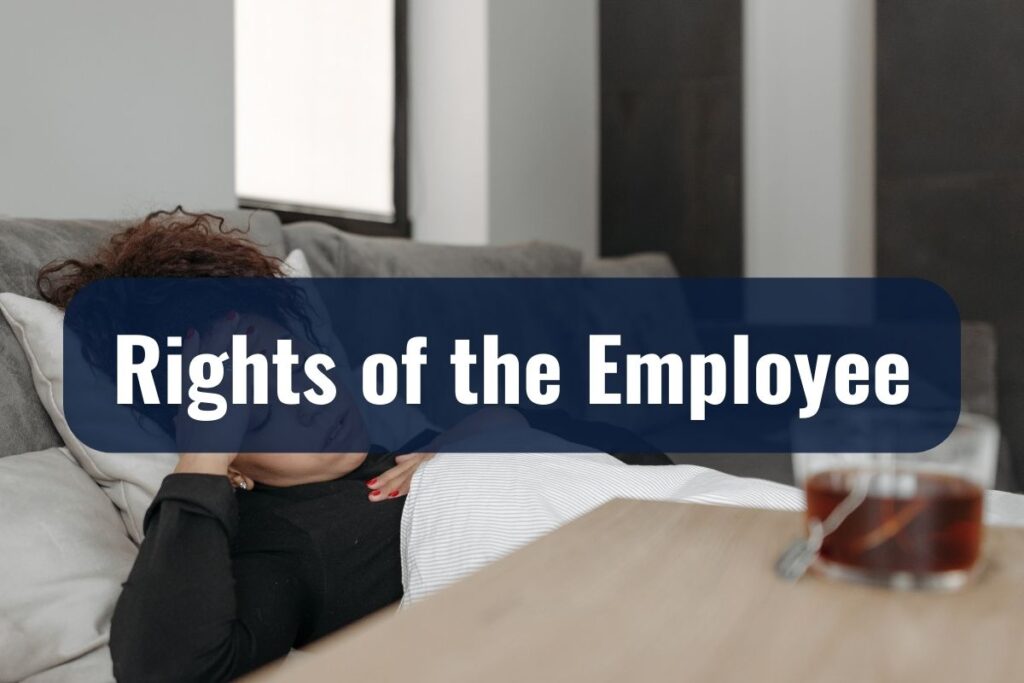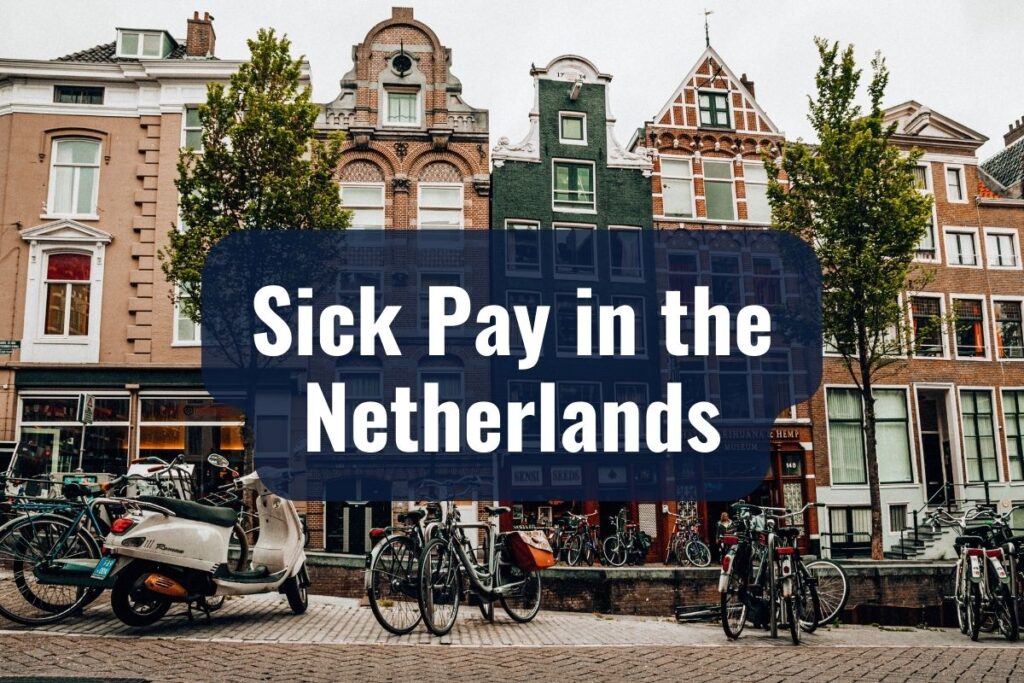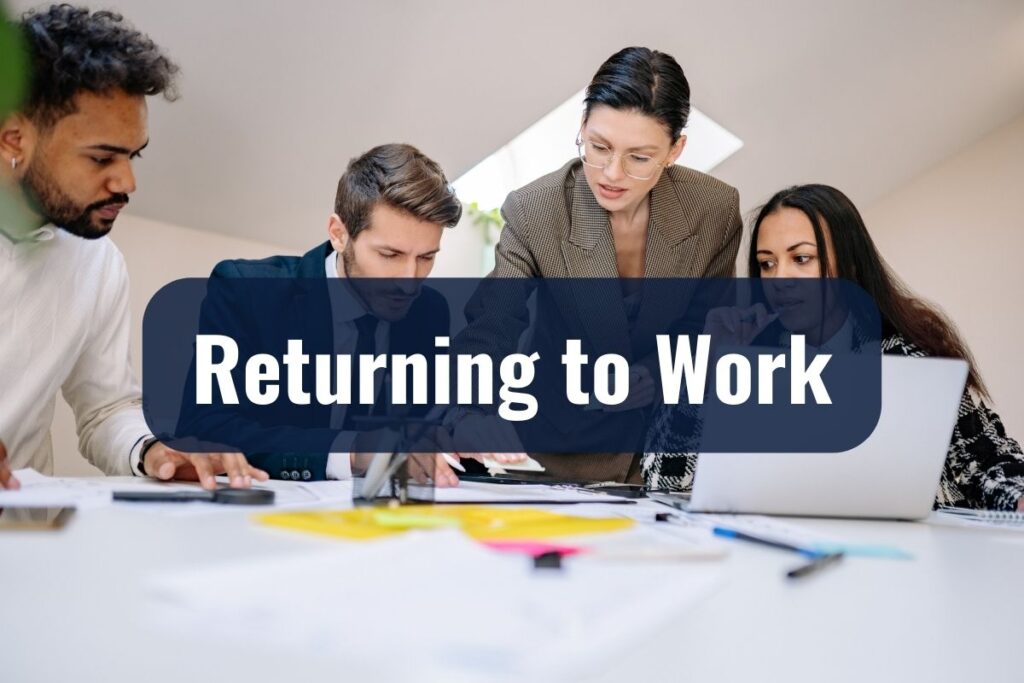While the Dutch are known for their forthright communication and support, there may be times when the nuances of labor rights, particularly regarding sick leave, can seem a tad overwhelming. Especially when considering that these rules might be different from what one might be accustomed to in their home country.
In this article, we’ll delve into the details of sick leave in the Netherlands, providing clarity on both the rights of the employee and the responsibilities of the employer.
Key Takeaways
- The Dutch system prioritizes employee welfare during sickness, ensuring continued pay and support.
- Employees are entitled to at least 70% of their last earned wage during sick leave.
- Employers shoulder essential responsibilities, from continued pay to providing alternative work.
- Returning to work post-sickness in the Netherlands is structured, sensitive, and supportive.
- Special situations, like pregnancy or sickness during holidays, have dedicated provisions.
- Multiple resources, from UWV to expat centers, are available for further guidance and assistance.
Understanding the Basics
Navigating the landscape of work in a foreign country is like learning a new dance. You may stumble initially, but with time and the right guidance, you’ll find your rhythm.
When it comes to sick leave in the Netherlands, understanding the foundational elements is the first step towards being well-prepared, ensuring that if ever you need to take a step back from work due to health reasons, you’re fully aware of how to proceed.
Definition of Sick Leave in the Netherlands
In the simplest of terms, sick leave in the Netherlands refers to the period during which an employee cannot perform their work due to health-related reasons. It’s a time allocated for recovery, ensuring that employees are not pressured to work when their health is compromised. The Dutch system recognizes that an individual’s well-being is paramount, and thus, the provision for sick leave is both a right and a responsibility.
Short-term vs. Long-term Illness
Illnesses, unfortunately, don’t come with a predefined schedule. While some might last only a few days, others could extend for longer durations. In the Dutch system:
Short-term illness: This typically refers to illnesses that last a few days to weeks. Think of the common cold, flu, or minor injuries. For such illnesses, the general procedure involves notifying the employer, taking the necessary time off, and then resuming work once recovered.
Long-term illness: This pertains to more prolonged health concerns, which might incapacitate an employee for several weeks to months. The approach towards long-term illness is more structured, involving regular checks, rehabilitation plans, and consistent communication between the employee, employer, and company doctor.
As a foreigner in the Netherlands, it’s beneficial to familiarize oneself with these categories. Not only does it help in setting the right expectations, but it also ensures that you can plan and communicate effectively with your employer, should the need arise.
Rights of the Employee

The heart of the Dutch work culture lies in its commitment to employee welfare. Recognizing that the strength of a workforce is as much about mental and physical well-being as it is about skills and knowledge, the Netherlands has established a set of rights that protect employees during times of illness.
For foreigners in the Netherlands, grasping these rights is pivotal to ensuring peace of mind and understanding the framework that supports you in your healing journey.
Informing the Employer: How and When to Report Sickness
Your health should always be your top priority. If you find yourself unable to perform your duties due to illness, it’s essential to notify your employer at soon as possible. Every company might have its protocol, but generally:
- It’s expected that you inform your employer on the first day of your sickness. This can usually be done via a phone call or an email, but it’s advisable to follow your company’s specific guidelines.
- In your communication, while you need to convey that you’re unwell, you’re not obligated to disclose the specifics of your illness unless it directly affects your work duties.
Duration: How Long Can One Be on Sick Leave?
The duration of sick leave isn’t set in stone. It fundamentally depends on the nature of the illness and the recovery time required. However, there are a few things to keep in mind:
- In the Netherlands, an employee can receive sick pay for up to two years, provided the necessary conditions are met.
- Periodic assessments with a company doctor might be required, especially for long-term illnesses, to determine the progress and the expected duration of the leave.
Medical Examinations: Understanding the Role of the Company Doctor (bedrijfsarts)
A unique aspect of the Dutch system is the role of the company doctor, known locally as ‘bedrijfsarts’. Their primary function is to assess the health of employees and provide recommendations.
If you’re on sick leave, you might be asked to visit the company doctor. Their assessment can help determine the length of your sick leave and any adjustments needed for your return to work.
It’s vital to understand that while the company doctor works in coordination with the employer, their primary responsibility is toward your health. Their assessments are objective, and their recommendations aim to ensure a conducive environment for your recovery.
Sick Pay in the Netherlands

Financial stability during times of illness is a concern shared by many, regardless of nationality. Fortunately, in the Netherlands, the structure of sick pay is rooted in the principle of ensuring employees do not bear undue financial hardships when they’re unwell.
As a foreigner working in this country, understanding the nuances of sick pay can provide a sense of security, affirming that while you focus on your health, the system is designed to support you financially.
General Guidelines on Sick Pay
Navigating the waters of sick pay can seem complex, but at its core, the Dutch system aims to be both fair and comprehensive. Here’s a general overview:
Typically, if you fall ill, you are entitled to at least 70% of your last earned wage. This ensures that while you might experience a reduction, there’s still a substantial safety net in place.
This 70% is capped at a certain maximum daily wage, which is adjusted periodically. It’s wise to check the latest figures or consult with your HR department to get an accurate understanding.
The sick pay begins on the second day of your sickness, ensuring that there’s minimal delay in the financial support you receive.
Variances by Contract
It’s essential to be aware that while there are standard guidelines, specific details can vary based on your employment contract or any collective labor agreements (CAOs) in place.
Some contracts or CAOs might offer more generous sick pay, sometimes even up to 100% of the wage, especially for the initial period of sickness. It’s always recommended to review your contract or consult with your employer to understand the exact terms that apply to you.
Minimum Wage Considerations
The Dutch system also has provisions to ensure that those earning the minimum wage aren’t disproportionately affected during times of illness.
If you’re on the minimum wage, the 70% sick pay might translate to a figure that’s lower than the legal minimum wage. In such cases, the employer is obligated to pay you sick pay that’s equivalent to the minimum wage, ensuring that you’re not financially disadvantaged.
Employer’s Responsibilities
The mutual respect and balance between employers and employees are evident in the Dutch work culture. Just as employees have rights and duties, employers too shoulder significant responsibilities, especially when it comes to the well-being of their staff.
| Responsibility | Description |
| Payment Obligations | Pay at least 70% of the employee’s last earned wage during sick leave, subject to employment contracts or CLAs. |
| Providing Suitable Alternative Work | Offer alternative tasks if the employee can’t perform their regular duties after consulting with the company doctor. |
| Collaboration with Medical Professionals | Ensure access to the company doctor and develop a reintegration plan with occupational health services if required. |
For foreigners in the Netherlands, understanding these responsibilities can offer a reassuring perspective, highlighting that the system is constructed with checks and balances to ensure everyone’s welfare.
Payment Obligations During an Employee’s Sick Leave
The financial well-being of an employee during their sickness is a primary concern for Dutch employers. Here’s how they step up:
As discussed, employers are obligated to pay at least 70% of the employee’s last earned wage during their sick leave. This continues for up to two years, although there are specific conditions and nuances as the duration progresses.
It’s crucial to remember that this obligation might vary if specific terms are laid out in employment contracts or collective labor agreements. In some cases, the employer might pay more than the statutory requirement.
Providing Suitable Alternative Work
Recovery is a journey, and sometimes, an employee might be fit for certain tasks but not their regular duties. In such scenarios, the employer has a role to play:
If, after consulting with the company doctor, it’s determined that the employee can perform alternative tasks, the employer should offer suitable replacement work. This ensures that the employee can ease back into the workforce without compromising their health.
This alternative work should be meaningful and in line with the employee’s skills and capabilities, ensuring that it’s not just a temporary fix but a constructive arrangement.
Working with a Company Doctor and Occupational Health Services
The health of an employee isn’t just a personal concern; employers are actively involved, ensuring that the right support is available.
Employers are responsible for collaborating with the company doctor and making sure that the employee has access to necessary medical assessments and guidance.
If an employee is on long-term sick leave, the employer, in coordination with occupational health services, should develop a reintegration plan. This plan outlines steps and measures to facilitate the employee’s return to work in a manner that’s beneficial for all parties involved.
Returning to Work

The journey of recovery from illness is not just a physical or mental process but also entails reintegrating into one’s professional life. The return to work post-sickness can be a phase filled with mixed emotions: relief, apprehension, eagerness, and sometimes even uncertainty.
In the Netherlands, this transition is approached with sensitivity and planning, ensuring that employees feel supported and equipped to re-immerse themselves into their roles seamlessly.
The Reintegration Process
The Dutch system understands that a gradual and structured return can often be more beneficial than an abrupt resumption of duties, especially after a prolonged illness.
Based on the nature and duration of the illness, a reintegration plan might be developed. This plan, typically crafted in consultation with the company doctor and the employer, outlines the steps and adjustments required to help the employee return to work.
The plan might involve phased working hours, alternative tasks, or even specific accommodations in the workspace. It’s tailored to the individual, ensuring their well-being remains central.
Communication is Key
A smooth return to work hinges on open dialogue between all involved parties.
Regular check-ins with the employer and the company doctor can be expected. These discussions can help gauge how the employee is adjusting, address any challenges, and adapt the reintegration plan if necessary.
As an employee, voicing any concerns, feedback, or needs during this period is crucial. The Dutch work ethos places a high value on mutual respect and understanding, and employers are generally receptive to ensuring the comfort and ease of their staff.
Adjustments and Accommodations
Every illness is different, and so is every individual’s recovery path. Recognizing this, the Dutch system is flexible in its approach to reintegrating employees.
If, after returning, an employee realizes they’re not fit for their previous role or tasks, there’s a provision to discuss and seek alternative assignments. The aim is always to find a balance where the employee can contribute productively without compromising their health.
Physical adjustments, like ergonomic chairs, special equipment, or even changes in the workspace, can be considered based on the employee’s needs.
Special Situations

Every individual’s journey in the Netherlands is unique, filled with specific circumstances and situations that might not fit neatly into the standard framework.
In the realm of sick leave and returning to work, there are particular scenarios that warrant special attention. The Dutch system, in its characteristic manner of thoroughness, provides guidance even for these less common but equally significant situations.
Pregnancy and Sick Leave
Pregnancy, with its myriad changes and challenges, might sometimes necessitate taking sick leave. It’s vital to understand how this interacts with the standard sick leave provisions.
If a pregnant employee falls ill and it’s not related to the pregnancy, the standard sick leave rules apply. However, if the sickness is directly linked to the pregnancy, then it’s treated differently, often allowing for more extended support and consideration.
It’s also essential to note that pregnancy-related sick leave does not deduct from maternity leave, ensuring that mothers-to-be get the full duration of their entitled rest both before and after childbirth.
Sickness During Holidays
Sometimes, illness can strike even during a vacation, leading to questions about how this affects one’s holiday leave.
If an employee falls ill during their holiday, they have the right to convert their holiday days to sick days. This ensures that they don’t lose out on their well-earned vacation time due to unforeseen illnesses.
However, it’s important to promptly inform the employer about the sickness, even if you’re abroad. Following the standard protocol of reporting is crucial here.
Sick Leave for Part-time Workers
The dynamics of sick leave can vary slightly for those who work part-time.
The fundamental principle remains the same: part-time employees are entitled to sick pay and the associated rights and responsibilities.
However, the calculation for sick pay will be based on their average earnings, taking into account their part-time hours. The commitment to ensuring fairness remains unwavering, regardless of the number of working hours.
Sickness After Termination of Employment
In rare situations, an employee might fall sick shortly after their employment has been terminated, leading to questions about their entitlements.
If an employee becomes ill within four weeks of their employment termination, they might still be eligible for sick pay, provided certain conditions are met. This provision ensures that recently laid-off workers are not left in a vulnerable position, both health-wise and financially.
Seeking Additional Help
While the Netherlands offers a comprehensive system to ensure the welfare of employees during sickness, there are moments when individuals might find themselves seeking further clarity, assistance, or guidance. Whether it’s understanding the intricacies of a specific clause, seeking mediation in disputes, or merely needing a bit more personalized advice, there are avenues and resources available to provide that extra layer of support.
Employee Insurance Agency (UWV)
The UWV plays a pivotal role in various aspects of employment in the Netherlands, and it is an invaluable resource when it comes to matters related to sick leave.
The agency can offer clarity on the rights and responsibilities associated with sick pay and leave. In situations where there’s a dispute between an employer and employee regarding sick leave, the UWV can provide mediation or even make binding decisions in certain cases.
Legal Counsel
Sometimes, the complexities of a situation might require legal insight.
There are various legal firms and individual practitioners in the Netherlands that specialize in employment law. They can provide guidance on your specific situation, ensuring your rights are upheld.
For foreigners, there are also many English-speaking lawyers familiar with the nuances faced by non-native workers, ensuring that language isn’t a barrier to seeking assistance.
Employee Unions
Unions in the Netherlands play a significant role in championing the rights of workers, and they can be a formidable ally when navigating the intricacies of sick leave.
Many unions offer advisory services, helping members understand their rights and entitlements better.
In the event of disputes or challenges, being part of a union can provide additional leverage, ensuring that an employee’s voice is heard and their interests protected.
Community and Expat Centers
The Netherlands, with its rich tapestry of international workers, has numerous community and expat centers.
These centers often host workshops, information sessions, and counseling services related to employment issues. Networking in these spaces can also lead to valuable peer advice as fellow expatriates share their experiences and insights.
While the Dutch system is designed to be as transparent and supportive as possible, it’s heartening to know that if there’s ever a need for more in-depth help or understanding, myriad resources are available. In a country known for its openness and progressive outlook, these avenues of assistance stand as a testament to its commitment to ensuring that every individual, local or foreign, finds their footing with confidence and security.